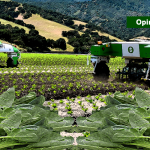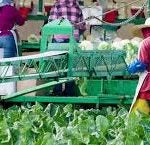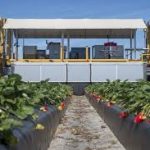This project seeks to understand the immediate, mid-range, and long-term economic and labor market impacts of pervasive, intelligent, and autonomous agricultural robotics and technologies (AgTech) in the specialty and fresh-fruit tree crop sectors in California,Washington, and other states. These crop sectors are facing significant multifaceted challenges including labor shortages, worker strain, and a critical need for environmental sustainability. The integration of safe human-robot systems and smart technologies has emerged as a holistic solution to these issues promising to mitigate labor shortages, enhance safety and efficiency, and incorporate AI-driven techniques to boost environmental sustainability, crop yield, and quality without overburdening the human workforce. Scholars suggest that AgTech can hold positive impacts for economies and labor markets including replacing the shrinking workforce, augmenting jobs, creating new jobs, improving workplace safety, as well as increasing efficiency and boosting production. Yet little is known about how these technologies exactly impact labor and production processes and outcomes nor the implications such impacts have in shaping the future trajectories of local and regional economies.
The research also explores the workforce and economic development implications these tools present for the local and regional economies in which these sectors are embedded. The goal of the project is to prepare the future agricultural workplace, its labor force, as well as and workforce development systems that support these sectors for these emerging technologies in ways that effectively and equitably improve productivity and labor market outcomes over the long term.
Research objectives include the development of workforce and economic development policy strategies that understand the feedback between technological developments and the agricultural economy and labor force, as well as policy strategies that promote the inclusion of stakeholder perspectives and are reflective of stakeholder preferences. This research project is supported by funding from the National Science Foundation’s Future of Work Program, the National Institute for Food and Agriculture, the United States Department of Agriculture, and the University of California Office of the President


